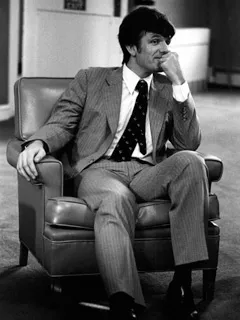David W. Fraser
1982–1991

“We must be willing to enter the fray when the issue is important.” Less than a month after taking office in late 1982, David W. Fraser (b. 1944) asked the Board of Managers to respond to an amendment to the Military Selective Service Act, which required schools to withhold federal financial aid from students who failed to register for a draft. Fraser considered the law unconstitutional and, fearing it would allow governmental pressures to restrict college enrollments, testified on the matter before a House subcommittee on education.
At Fraser’s instigation, the College became the third in the country to join a Minnesota lawsuit against the amendment, where similar briefs were filed by two schools in the state. Students also urged the College to support the financial needs of nonregistrants. At its next meeting, the Board unanimously voted to replace any funds lost by students who declined to register.
Fraser’s administration also realized the divestment of College stock in companies that conducted business in South Africa.
Fraser oversaw a number of curricular changes. His recommendation that more of an emphasis be placed on writing led to the establishment of the Writing Associates program, under which upperclassmen serve as peer tutors for first-years and sophomores. New concentrations in Women’s (now Gender and Sexuality) Studies, Computer Science, and German Studies were added, as well as majors in Theater and Asian Studies. A Dance Program was added to the Music Department in 1990.
An alumnus of the George School, Haverford College, and Harvard Medical School, Fraser led the federal government’s successful search for the cause of Legionnaires’ disease and won national recognition for his work on toxic shock syndrome. In 1991, he left Swarthmore to head the Social Welfare Department at the Aga Khan Secretariat, where he directed health, education, and housing activities in Asia and Africa. He is currently serving as an independent consultant on epidemiology, international health, education, and material culture and as a research associate at the Textile Museum and the University of Pennsylvania Museum of Archaeology and Anthropology.



